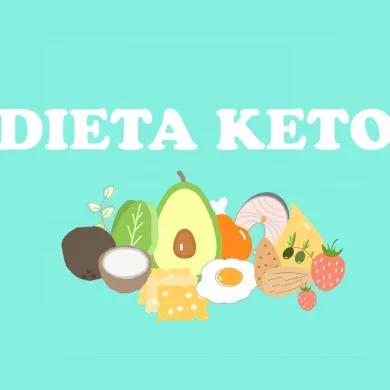The Surprising Benefits of Slow Eating
Introduction
In the fast-paced world we live in, meals are often consumed in a rush, with little thought given to the process of eating itself. This hurried approach to eating can be detrimental to both our physical and mental well-being. However, by embracing the practice of slow eating, individuals can unlock a multitude of health benefits. This article explores the surprising advantages of slow eating and how it can profoundly impact our lives.
What is Slow Eating?
Slow eating is the practice of eating food at a deliberate and mindful pace, allowing oneself to savor each bite and fully engage with the eating experience. This approach encourages individuals to pay attention to their hunger and fullness cues, promoting a healthier relationship with food. Slow eating is not just about the speed at which we eat, but also about being present in the moment and appreciating the flavors, textures, and aromas of our meals.
Enhances Digestion
When we eat slowly, we give our bodies the time they need to properly digest food. Chewing is the first step in the digestive process, breaking down food into smaller pieces and mixing it with saliva, which contains digestive enzymes. By thoroughly chewing each bite, we aid the digestive process, leading to better nutrient absorption and fewer digestive issues such as bloating and indigestion.
Chewing Thoroughly
Chewing food thoroughly is a critical aspect of slow eating. When food is well-chewed, it is easier for the stomach to break it down, reducing the workload on the digestive system. This can prevent discomfort and improve overall digestive health. Moreover, the act of chewing sends signals to the brain to initiate the release of digestive enzymes, further aiding digestion.
Reducing Overeating
Slow eating also helps prevent overeating by allowing the brain to register fullness signals. It takes about 20 minutes for the brain to receive signals from the stomach that it is full. By eating slowly, we give our bodies the necessary time to communicate these signals, reducing the likelihood of consuming more food than needed.
Promotes Weight Management
One of the most significant benefits of slow eating is its potential to aid in weight management. By eating slowly, we become more attuned to our body’s hunger and fullness cues, making it easier to avoid overeating and make healthier food choices. This mindful approach can lead to a reduction in calorie intake, supporting weight loss or maintenance efforts.
Mindful Portion Control
Slow eating encourages mindful portion control, allowing individuals to enjoy their meals without feeling deprived. By taking the time to appreciate each bite, we can derive more satisfaction from smaller portions, leading to a more balanced and sustainable approach to eating.
Improved Satiety
Eating slowly enhances the feeling of satiety, or fullness, after a meal. When we eat quickly, we often consume more food than necessary before the brain registers that we are full. By slowing down, we become more aware of our body’s signals, helping us to recognize when we have had enough to eat and preventing unnecessary calorie consumption.
Enhances Enjoyment of Food
Slow eating allows us to fully enjoy the sensory experience of eating, from the taste and texture of the food to its aroma and appearance. By savoring each bite, we can appreciate the complexity of flavors and the effort that went into preparing the meal. This heightened enjoyment can lead to a more positive relationship with food and a greater appreciation for the culinary arts.
Engaging the Senses
Slow eating encourages us to engage all our senses during meals. By paying attention to the colors, smells, and textures of our food, we can enhance the overall dining experience. This mindful approach not only increases enjoyment but also promotes a greater understanding of the food we consume.
Reducing Emotional Eating
By fostering a mindful eating environment, slow eating can help reduce emotional eating. When we eat quickly, we often do so in response to stress, boredom, or other emotions, without truly enjoying or needing the food. By slowing down and focusing on the eating experience, we can better distinguish between physical hunger and emotional cravings, leading to healthier eating habits.
Improves Mental Well-being
The benefits of slow eating extend beyond physical health, positively impacting mental well-being as well. By encouraging mindfulness and presence during meals, slow eating can promote relaxation and reduce stress, creating a more balanced and peaceful state of mind.
Mindfulness and Stress Reduction
Slow eating is a form of mindfulness, a practice that has been shown to reduce stress and improve mental health. By focusing on the present moment and the act of eating, we can create a sense of calm and relaxation, counteracting the stressors of daily life. This mindful approach can lead to a greater sense of well-being and improved mental clarity.
Building Healthy Rituals
Incorporating slow eating into daily life can serve as a healthy ritual, providing a moment of respite and reflection amidst the chaos of the day. By prioritizing mealtime as a time for self-care and mindfulness, we can foster a more balanced and fulfilling lifestyle.
Strengthens Social Connections
Slow eating also offers social benefits, as it encourages more meaningful interactions during meals. By taking the time to enjoy food with others, we can strengthen relationships and create lasting memories centered around shared dining experiences.
Encouraging Conversation
When meals are not rushed, there is more opportunity for conversation and connection. Slow eating allows for a more relaxed dining atmosphere, where individuals can engage in meaningful discussions and deepen their relationships with family and friends.
Creating a Sense of Community
Sharing a meal is a universal experience that brings people together. By embracing slow eating, we can create a sense of community and belonging, as we bond over the shared enjoyment of food and the stories that accompany it.
Conclusion
The practice of slow eating offers a wealth of benefits that extend beyond the table. From enhancing digestion and promoting weight management to improving mental well-being and strengthening social connections, slow eating is a simple yet powerful tool for fostering a healthier and more fulfilling lifestyle. By taking the time to savor each bite and engage with the eating experience, we can transform our relationship with food and unlock the surprising advantages of slow eating.















Add comment